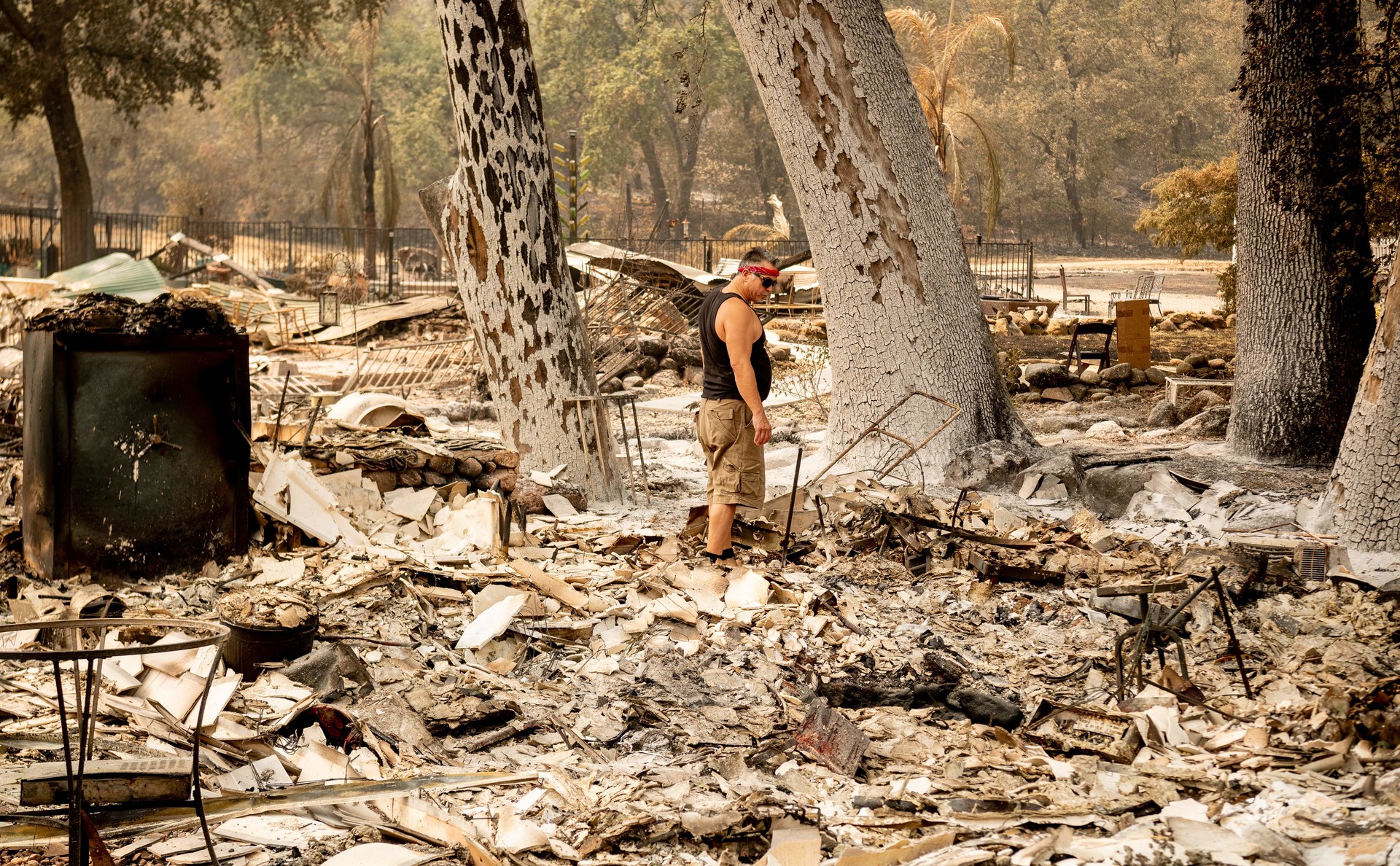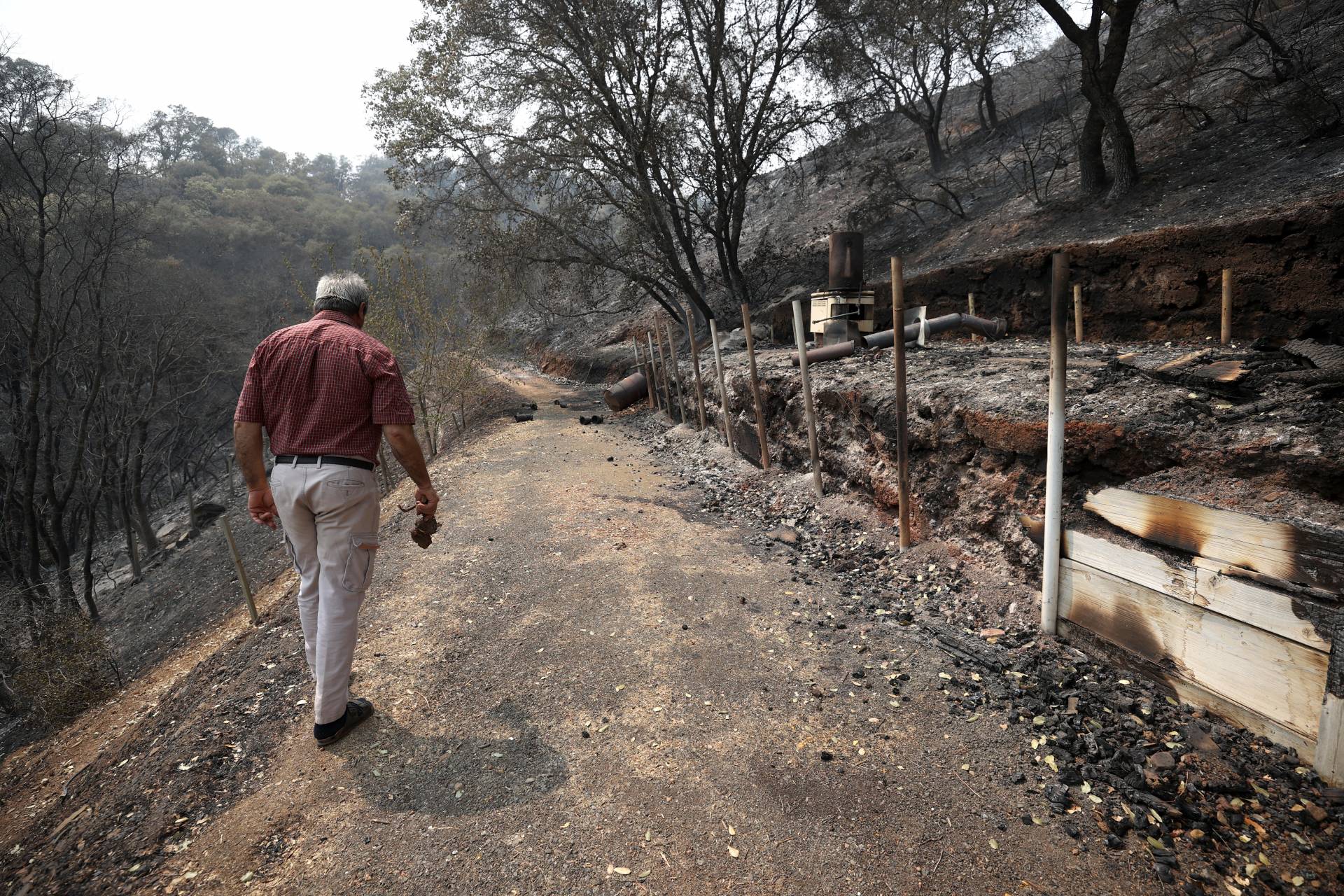Before a federal judge in San Jose on Saturday temporarily blocked the U.S. Census Bureau from winding down its operations early, the agency had begun laying off door-to-door outreach workers — even in fire-damaged regions of Northern California, according to census employees and internal emails obtained by KQED.
In one hard-hit area in Napa and Solano counties, more than 40 door knockers, known as enumerators, were let go early last week, the emails showed. One employee estimated that was about 40% of the door-to-door staff for that zone, where fire evacuations, road closures and thick smoke have hindered the census count.
The layoffs of temporary workers, which started a full month before the federal government’s current deadline for completing the once-a-decade head count, have alarmed some elected officials and census employees, and eroded their trust in the Trump administration’s commitment to overseeing a complete and accurate census.
Workers told KQED that the difficulties posed by wildfires, on top of the coronavirus pandemic, mean more enumerators are needed — not fewer — if they are to count everyone by Sept. 30, the bureau’s new date to end the count, which is one month earlier than the Oct. 31 deadline officials had previously proposed.

“We've got a hopeless number of cases to do in a shortened amount of time,” said one Bay Area field supervisor, who did not want to be named for fear of being fired. “I look at that and go: ‘It looks like sabotage to me.’ ”
Census Bureau officials declined KQED’s request for an interview, but issued a statement acknowledging the job cuts and declaring that door-to-door follow up is going as planned in the region that includes California and six other Western states.
“We are currently on track to complete this operation by the September 30th deadline,” the statement said. “There are now fewer assignments available for the census takers we have hired. As we complete the remaining workload, we will be offering shifts to those employees who meet a threshold of performance and availability, as these remaining assignments require more time and effort.”
Judge Intervenes
On Saturday, U.S. District Judge Lucy Koh granted a temporary restraining order that blocks the Census Bureau from terminating more staff until she holds a hearing on Sept. 17. The move comes in response to a lawsuit brought by the cities of San Jose and Los Angeles, along with other local governments, civil rights groups and Native American tribes.
The lawsuit asks the court to require counting operations to continue through Oct. 31, arguing that shortening the timeline will unlawfully harm the accuracy of crucial census data.
If not for the pandemic, the door-to-door follow ups with households that have not yet responded to the census would have been completed by the end of July. But field operations shut down in the spring over concerns about COVID-19, and U.S. Commerce Secretary Wilbur Ross and Census Bureau Director Steven Dillingham asked Congress for an extension until April 2021 to report state population numbers to the president. Then, on Aug. 3, they reversed themselves and said they would hold to the statutory reporting deadline of Dec. 31 deadline, and thus end the counting period by Sept. 30.

